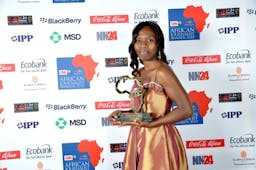WEB 2.0; The Unbroken Power for Women Empowerment
Jan 21, 2015
Story
For a very long time, women and girls’ rights have been infringed upon. Despite the problem being global, women themselves have had very limited ideas and ways of putting an end to it. Most of the victims have remained silent and tried to solve their problems individually. As expected, this has failed to end women and girls’ abuse.
I am therefore quite excited to have been introduced to Web 2.0. This gives me and all other women who have access to it, the edge to tackle women and girls abuses. It excites me that with one voice, women can now be able to share experiences on common problems. That way I know it will be easy to find solutions.
It is easy to learn from one another through Web 2.0. One can try out what has proven to work elsewhere. Distance between people with common problems is now history. Web 2.0 is our ‘one village’ that brings us together in a split of a second and within a short time; many women can discuss and share ideas on a given topic.
Since Web 2.0 is basically a free media, no government, neither organization nor individuals can manage to stop the power it has to unify women to tackle their problems.
It is therefore possible for women fighting for their rights in a small and impoverished nation like Malawi, to win support from a rich and powerful nation like America. Web 2.0, bridges the gab which has for a long time existed between the rich and the poor, the powerful and the powerless.
Web 2.0 may not be favored by those in power or those that abuse the rights of others, but unfortunately for them, this is just unstoppable.
Web 2.0 holds the power to change policy direction as through it one can mobilize support. It holds the power to uncover the hidden. It is that powerful even to drive the change of governments. Clearly so in the recent Egyptian revolution.
Professionally, Web 2.0 tools such as facebook, twitter and YouTube are empowering for me because I am able to connect with journalists and news sources even across the borders. With the tools, I am able to investigate stories not only in my country Malawi but in other African nations too.
One simple example is when I was investigating genital mutilations and human sacrifices. There had been such cases in Malawi but government was puzzled on how to end this. Through web 2.0, I connected with journalists in Uganda Nigeria, South Africa and Mozambique. My findings revealed that there was a network between the rich and the poor across some African Nations involved in the malpractice.
My recommendation was that if this is to end, there was need for governments to work together. This is how powerful web 2.0 is, not only to my career, but in all other professions.




